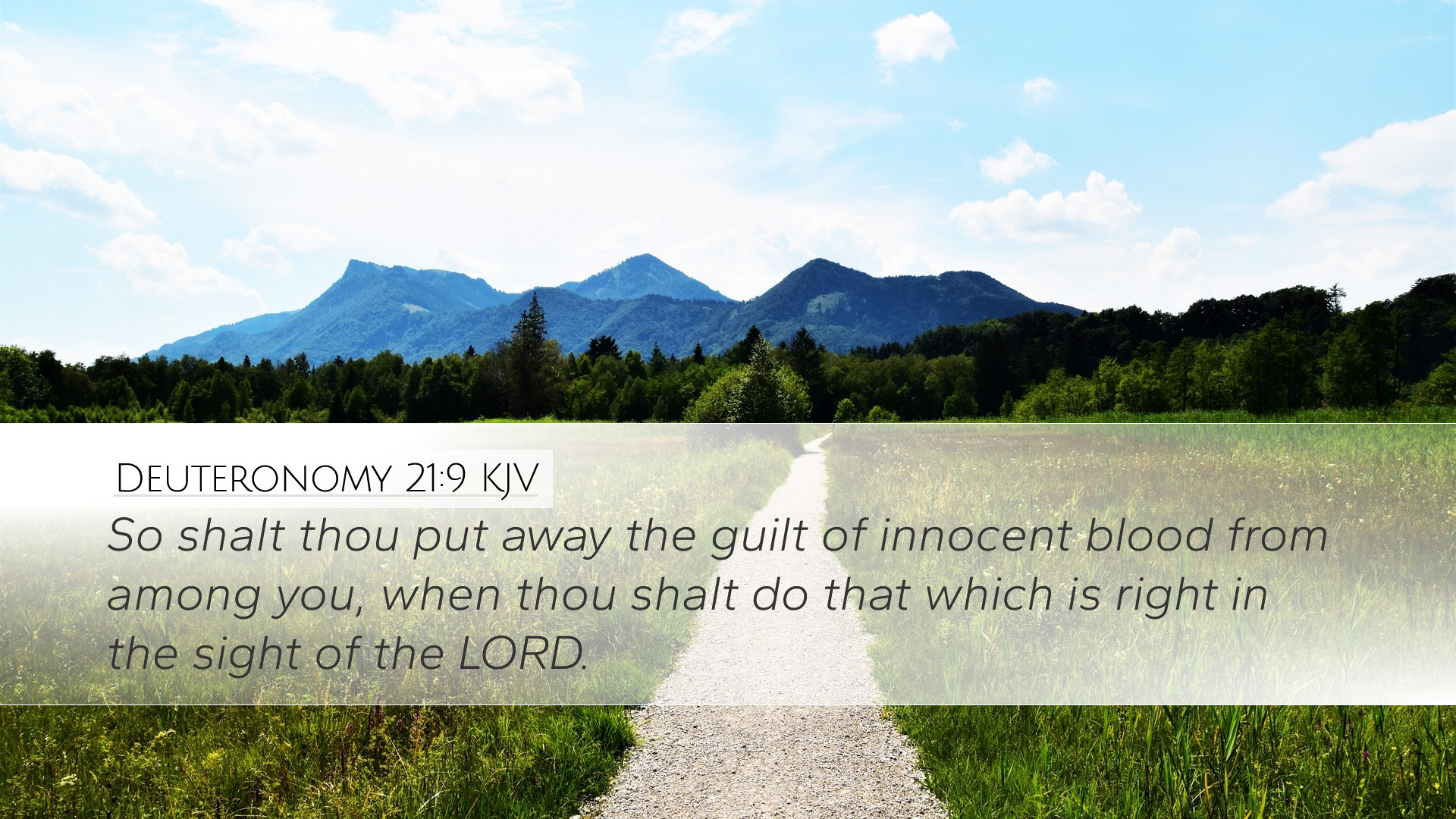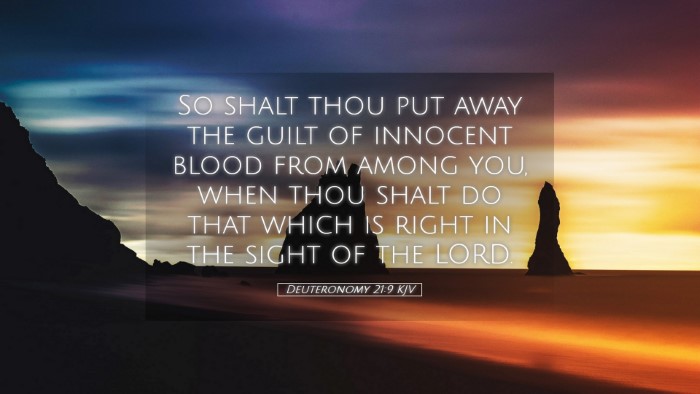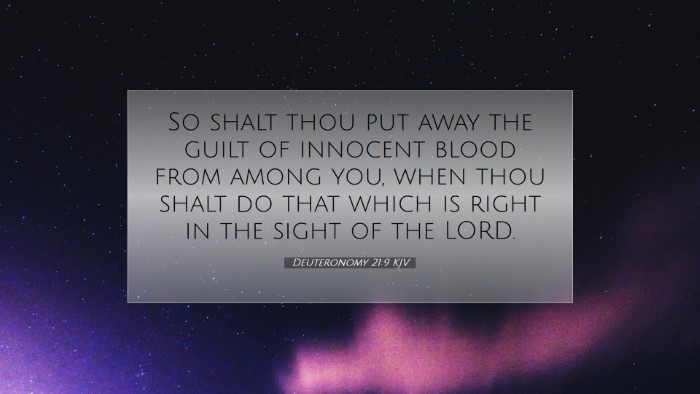Commentary on Deuteronomy 21:9
Verse Text: "So shalt thou put away the guilt of innocent blood from among you, when thou shalt do that which is right in the sight of the LORD."
Introduction
The verse from Deuteronomy 21:9 is pivotal in understanding the ancient Israelite legal system and its view on justice, societal guilt, and the preservation of innocence. This commentary amalgamates insights from notable public domain theologians to explore its significance regarding both the historical context and its theological implications.
Historical Context
Deuteronomy is a reiteration of the Law given to the Israelites as they prepare to enter the Promised Land. This particular verse belongs to a section dealing with various laws concerning justice and the handling of violence and bloodshed within the community. The passage emphasizes the need for proper procedure to avoid communal guilt associated with unsolved murder, a grave offense in Israelite society.
- Matt Henry: He explains that the instructions are aimed at ensuring that the community takes collective responsibility for crime, thereby preventing the pollution of the land by innocent blood.
- Albert Barnes: Barnes notes the emphasis on the “innocent blood” and the necessity for the community to be proactive in clearing themselves of culpability related to unsolved homicides.
- Adam Clarke: Clarke provides a detailed examination of the mechanisms expected to be employed in the case of a murder where the murderer is unknown, delineating the rituals and their significance in the community’s quest for purity and justice.
Theological Implications
This verse carries profound theological implications regarding God’s justice, communal responsibility, and the sanctity of life. It stresses the following themes:
- The Sanctity of Life: The directive to handle cases of murder places a high value on life, which reflects the character of God as the giver of life.
- Community Responsibility: The verse illustrates an essential principle in biblical morality—that sin is not just an individual affair, but it affects the entire community.
- Divine Justice: The act of performing the prescribed rituals is a way of seeking divine clemency and ensuring that justice, as defined by God, prevails.
Ritual and Procedure
The law described involves a ritual that signifies the community's desire to purify themselves. The elders of the city nearest to where the crime was committed would be required to perform a symbolic act, including a heifer that has not been worked or worn a yoke. This ritual signifies the seriousness of the situation and the need for atonement:
- As noted by Matthew Henry, such rituals highlight the importance placed on proper procedure and the need for the community to participate in seeking justice.
- Albert Barnes describes how the ritual serves not only as a means of atonement but also as a public declaration that the community does not condone the act of murder.
- In Clarke’s analysis, the act of the heifer's slaughter not only serves to symbolize the gravity of the crime but also underscores the cost of sin, emphasizing that bloodshed brings a significant spiritual and communal burden.
Practical Application
For pastors, students, and theologians, Deuteronomy 21:9 should provoke contemplation on the nature of justice within society. The following applications emerge:
- Justice in Leadership: Leaders should adopt a stance of vigilance against wrongdoing, ensuring that innocent blood is not shed without consequence.
- Community Engagement: Communities ought to engage proactively in moral and ethical standards that value life and work to prevent violence.
- Collective Guilt: The collective nature of guilt is a reminder that societies must come together to address issues of injustice, crime, and violence.
Conclusion
Deuteronomy 21:9 serves as a potent reminder of how Israelite law incorporated ritual, community responsibility, and divine justice to address the profound moral issue of innocent bloodshed. The commentaries from Henry, Barnes, and Clarke collectively highlight the necessity of maintaining purity within the community and underscore the weighty consequences of failing to reconcile matters of justice and guilt before God.


